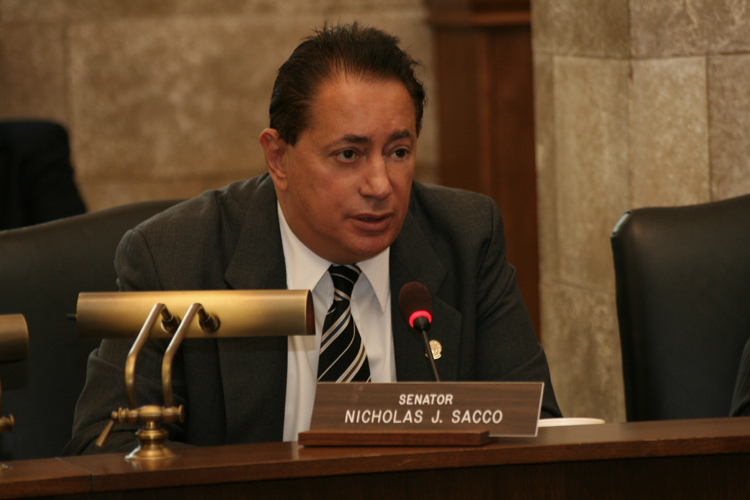
TRENTON – Senator Nicholas J. Sacco, D-Hudson and Bergen, introduced legislation on Monday that would set forth specific guidelines to be followed by law enforcement agencies when employing unmanned aerial vehicles, also known as drones, for surveillance purposes.
“Recent federal legislation has paved the way for the commercial use of drones here in the United States,” said Sacco, Chairman of the Senate Transportation Committee. “While this technology has many useful applications, it is important that we have stringent guidelines in place to ensure the safety and privacy of our residents.”
Under provisions of this bill, S2702, law enforcement agencies are prohibited from using a drone unless there are reasonable grounds to believe that information that may be derived from an unmanned aerial vehicle is relevant and material to an ongoing criminal investigation.
“In the future, drone technology will play a key role in law enforcement, assisting agencies in response to suspects of burglaries and murders, missing persons reports, surveillance of fires, and many more,” said Sacco. “It is important that we strike a balance between preventing the abuse of this technology and not hindering its positive uses.”
The bill permits the Missing Persons Unit to utilize a drone for search and rescue missions, including but not limited to, locating high risk missing person or child or following a notification that a person is abducted or missing by an Amber Alert or Silver Alert. The bill also allows forest fire services to use drones to survey or monitor a forest fire, and for any fire department to use them to monitor the extent of a fire in situations when the drones can assist firefighters in obtaining information on the damage caused by the fire to a building or structure.
The bill includes documentation requirements that would call upon law enforcement agencies or fire departments to submit proof of annual inspection, maintenance records, and a statement of facts recording the purpose, usage, and surveillance results for each drone.
Privacy measures in the bill ensure that information derived from the use of a drone would be strictly safeguarded from the public or any third party, any records unrelated to the ongoing criminal investigation would be required to be discarded within 14 days, and any evidence obtained illegally through these devices would be forbidden from being used as evidence in a criminal prosecution.
In addition, drones would be prohibited from being equipped with “antipersonnel devices,” which are defined as a firearm or any prohibited weapon, device, or projectile designed to harm, incapacitate, or otherwise negatively impact a human being.


